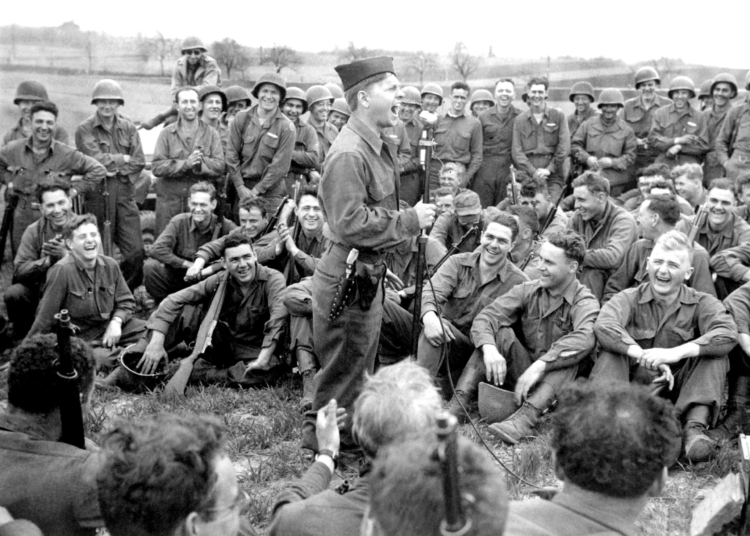This content is about the impact of music on the portrayal of the military in popular culture. It discusses how music has the power to influence our emotions and shape our understanding of the armed forces. The content explores the historical context of music in warfare, from ancient war drums to patriotic songs during the World Wars. It also examines the themes and emotions commonly associated with military music, such as heroism and sacrifice. The content highlights the variety of music genres used to depict the military, from traditional marches to rock anthems. It acknowledges the controversy surrounding the use of war tunes, but also argues that it can foster a sense of national pride and unity. The content concludes by emphasizing the lasting impact of music on the portrayal of the military in popular culture.
War Tunes: How Music Shapes the Portrayal of the Military in Popular Culture
Introduction
Music has a powerful impact on our emotions and the way we perceive certain situations. When it comes to the portrayal of the military in popular culture, music plays a vital role in shaping our understanding and connection with the armed forces. War tunes have been used for centuries to convey the heroism, camaraderie, sacrifice, and patriotism associated with military actions. From traditional marches to contemporary rock anthems, the choice of music profoundly impacts the audience’s perception of war, soldiers, and the military as a whole.
Historical Context
Throughout history, music has been intertwined with warfare. In ancient times, war drums and horns were used to rally troops, create fear in the enemy, and boost morale. During the World Wars, military bands played patriotic songs to inspire soldiers and maintain a sense of unity. These songs not only boosted morale but also spread propaganda and created a sense of nationalism among the civilian population. Fast forward to the present day, where the portrayal of the military in popular culture is heavily influenced by music, and war tunes continue to shape our perception of the armed forces.
Themes and Emotions
The choice of music in portraying the military in popular culture often revolves around certain themes and emotions. Heroism and bravery are commonly associated with uplifting and triumphant melodies. These tunes evoke a sense of pride and admiration for the soldiers, creating an emotional connection with the audience. On the other hand, somber and melancholic melodies are used to convey the sacrifices and tragedies of war. These tunes elicit empathy and sorrow, reminding us of the human cost of military conflicts.
Variety of Genres
Popular culture encompasses a wide variety of genres, and this is reflected in the music associated with the military. Traditional marches, such as “The Stars and Stripes Forever” or “Colonel Bogey March,” have become synonymous with military parades and are often used to denote discipline and order. Rock and metal anthems, like “Fortunate Son” by Creedence Clearwater Revival or “War Pigs” by Black Sabbath, have become iconic themes in war movies, expressing rebellion and challenging authority. Even modern pop songs, such as Katy Perry’s “Part of Me,” have taken on military undertones, showcasing themes of strength and resilience.
Impact and Controversy
The use of war tunes to shape the portrayal of the military in popular culture is not without controversy. Critics argue that glorifying war through music can lead to the romanticization of conflict and make light of its harsh realities. Additionally, music can perpetuate stereotypes and simplify complex geopolitical issues. On the other hand, proponents argue that war tunes serve as a tribute to the bravery and sacrifices of soldiers, helping to foster a sense of national pride and unity.
Conclusion
Music has a remarkable ability to shape our perceptions and emotions. In the portrayal of the military in popular culture, war tunes play a crucial role in conveying the heroic and tragic aspects of war, as well as instilling a sense of patriotism and unity. Whether through traditional marches, rock anthems, or contemporary pop songs, the choice of music has a profound impact on how audiences perceive and connect with the armed forces. As long as armed conflicts continue to exist, war tunes will continue to shape the portrayal of the military in popular culture.













